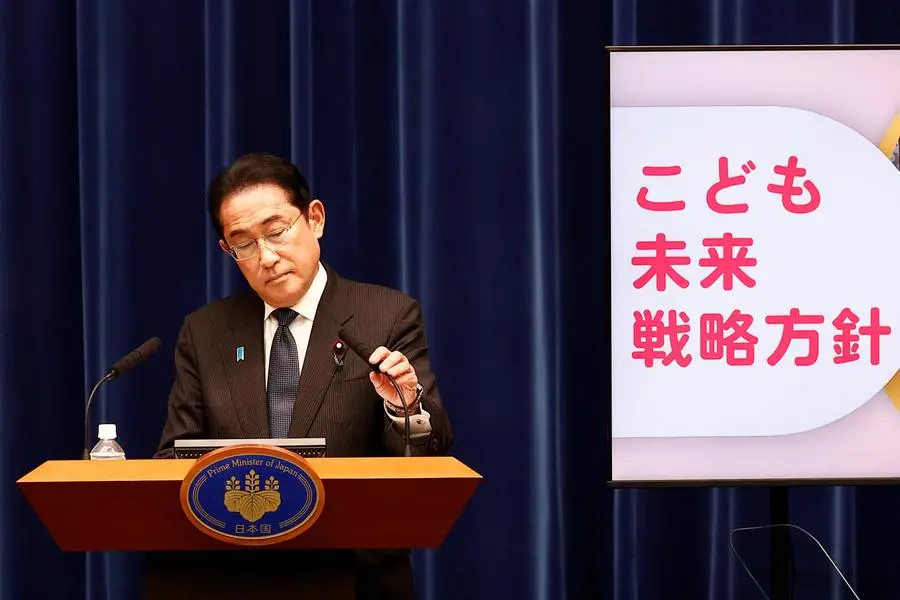PHOTO
TOKYO - Japanese Prime Minister Fumio Kishida unveiled on Tuesday a package of wide-ranging measures to reverse a dwindling birthrate, saying the problem needed to be tackled as an ageing population threatens the world's third-largest economy.
Kishida's flagship policy comes amid speculation that he will dissolve parliament this week and call a snap election, a move that could heighten calls from within his ruling party for big spending.
"Now is the last chance to reverse the downtrend in childbirth by the early 2030s," Kishida told a televised press conference.
"The low birthrate is a massive problem that concerns our country's society and entire economy and can't be put off."
With measures such as bigger payouts to families with children and providing homes for hundreds of thousands of such households, Kishida said he hoped to double child care spending by the early 2030s, from about 4.7 trillion yen ($33.7 billion) now.
The package may help his party appeal to the public, fanning speculation of an early election.
Although an election for parliament's powerful lower house is not due until late 2025, Kishida, who swept to power in October 2021, is keen to boost his grip on power in the party ahead of a leadership race next September, analysts say.
Kishida sidestepped queries on plans for a snap election, saying numerous factors would govern the decision as the approaching end of the parliament session could make for a fluid political situation.
"I want to be sure that I can assess the situation appropriately," he added. "I would like to refrain from commenting further on this matter."
Japan's birthrate has been on a steady decline, dropping last year to a record low of 1.26 from 1.57 in 1990, despite a series of government measures to reverse it.
Kishida's plan would see the government earmark about 3.5 trillion yen annually for the next three years for child care allowances and support for those taking child care leave.
The government will also urge companies to allow employees to choose more flexible working styles such as taking three days off a week, according to a draft of the package seen by Reuters.
The government has yet to outline how it would fund the measures, stoking fears of a worsening of Japan's already tattered finances.
On Tuesday, Kishida once again ruled out the prospect of a near-term tax hike, saying the funding gap would be filled by the issuance of special childcare bonds.
The government will work out the details of securing stable sources of funding by year-end, officials have said. ($1=139.4600 yen)
(Reporting by Tetsushi Kajimoto, Sakura Murakami, Chang-Ran Kim and Takaya Yamaguchi; Editing by Leika Kihara and Clarence Fernandez)





















